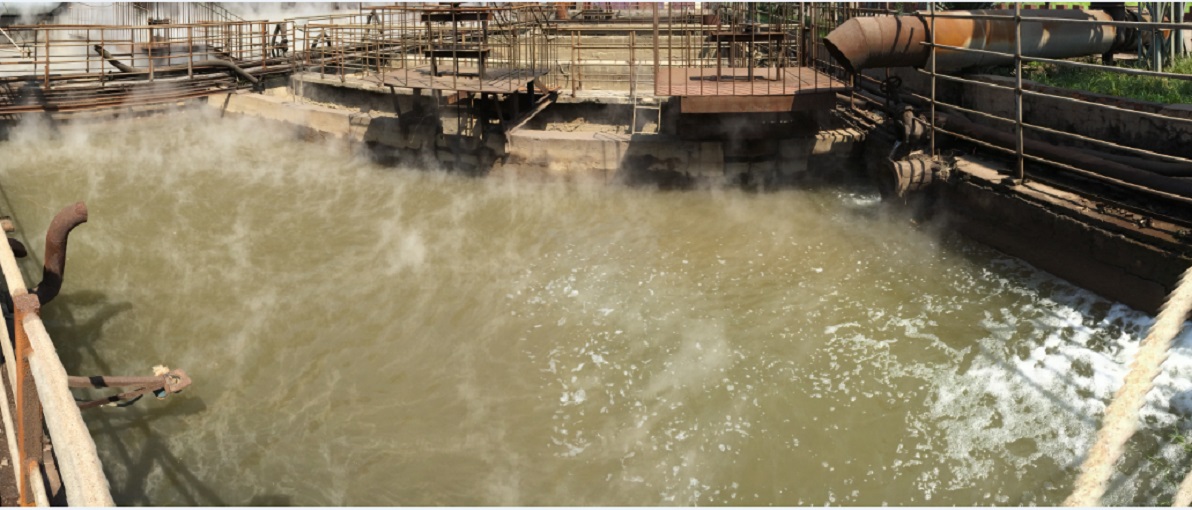
A pipe manufacturer in China was looking to reduce contamination in recycled process water. Eaton’s automatic self-cleaning strainer reduced total cost of production due to reliable, continuous and nearly maintenance-free filtration process resulting in 20% less water consumption.
XINXING Ductile Iron Pipes in the Handan, He Bei Province, China needed to reduce contamination from iron fragments, sand, and mineral particles in recycled cooling water resulting in system shut-downs and production loss. The solution was to replace three sets of existing and high-maintenance filters with one Eaton Model 2596 automatic self-cleaning strainer.
Many industries worldwide rely on iron and steel as an integral component within projects such as ship building, bridge construction and railway infrastructure. The global appetite for these materials is huge and for most manufacturers of iron and steel, production is a 24/7 process.
Process optimization China is a major supplier to the global iron and steel market. The manufacturer XINXING is based in He Bei Province and employs over 23,000 people in order to produce over 13,000,000 tons of high-quality iron and steel annually. It is therefore imperative that the manufacturer’s processes are optimized to reduce the amount of production downtime in order to satisfy the ever-growing global demand.
The manufacturing environment typically associated with the production of iron and steel can be considered somewhat hostile in nature. High levels of water consumption can lead to a variety of contamination issues being present. Heat is a common factor in manufacturing facilities, with furnaces and associated equipment utilized throughout their processes. Cooling this manufacturing equipment with water is required to keep their systems running at optimum levels.The challenges
Once applied to cool the iron-making furnace equipment, the water is gravity fed upstream to a collection sink basin before being pumped onwards at a flow rate of 13,210 GPM (3,000 m³/h) to a heat exchange recycle system. However, the water that is collected in order to be reused has a very high level of contamination, with iron fragments, sand and mineral particles being present. The water needs to be filtered in order to remove stated contaminants before it can be pumped onwards.
Sensitive components The filtration system that was being utilized simply couldn’t cope with the process of removing those particles. Any contamination greater than 4 mm in size was causing problems within the heat exchanger, as it contains many sensitive components such as flow rate valves. When these valves were being fed with ‘dirty’ water they degraded rapidly in terms of performance and even failed.
Maintenance was an on-going issue and bi-weekly cleaning was required in order to clean out the contamination. Typically, these maintenance periods lasted around one week and entailed a full system shutdown thus incurring significant production losses. The situation simply couldn’t be sustained by XINXING and the manufacturer realized that the current installation setup was not fit for purpose and had to be replaced.
The recycled water has a number of different uses around the factory, but it is also important to note that one of the uses is within a district heating system for local residents who have come to rely on the source for warmth in winters where temperatures can drop below -22 °F (-30 °C). What’s more, wastewater drainage represented an environmental risk due to strict policies, was harmful to maintenance employees and increased the total cost of production.
The solution Since XINXING had utilized Eaton’s filtration products in hydraulic applications for a number of years, a reputation for quality and service had been built up between the two companies. Via an Eaton distributor, a filtration specialist was invited to the iron and steel facility to closely examine the contamination issue. Following a period of consultation involving an in-depth technical discussion it was determined that the Eaton Model 2596 automatic self-cleaning strainer with a 3.9 mm (5/32 in) perforated convoluted element was the ideal choice for deployment in the recycling water intake piping system.
Eaton’s Model 2596 automatic self-cleaning strainer is a motorized unit designed for the continuous removal of entrained solids from liquids in pipeline systems, thus preventing damage to expensive pipeline system components and costly shutdown periods. It features the idL shaft seal that prevents leakage from the backwash shaft at the top of the strainer. With Eaton's idL seal, the exterior of the strainer stays dry and clean in service, there is never any external leakage or weeping of the process media down the sides of the strainer.
With an automatic control system monitoring the strainer operation, cleaning is accomplished by an integral backwash system. A small portion of the screen element is isolated and cleaned by reverse flow. The remaining screen area continues to strain, providing uninterrupted flow. Only a small amount of the liquid being strained is used to carry away the debris from the strainer.
Results In this application just one 30 in Model 2596 is used within the process, which replaced three sets of filters previously, saving a significant amount of space on the factory floor. Furthermore, 98% of the greater than 4 mm particles are removed from the water therefore reducing the potential for damage to downstream components.
The new system with the 30 in Model 2596 installed cut down on unplanned interruptions to the local heating system and reduced water consumption in the plant by 20% Plant maintenance shutdown was minimized to ensure that production could continue uninterrupted. XINXING now only conducts maintenance once a year, saving on both labour and spare parts costs that need to be replaced using the previous solution.
“The issue of contamination within the recycled water supply presented a major challenge for us in terms of breakdowns and maintenance” stated Wang Qi, production manager at XINXING Ductile Iron Pipes. “We are very pleased with the new solution from Eaton and the level of technical expertise and service we received made all the difference. The performance of the new solution exceeded our expectations and it represented a breakthrough in terms of cost savings and environmental performance.”




